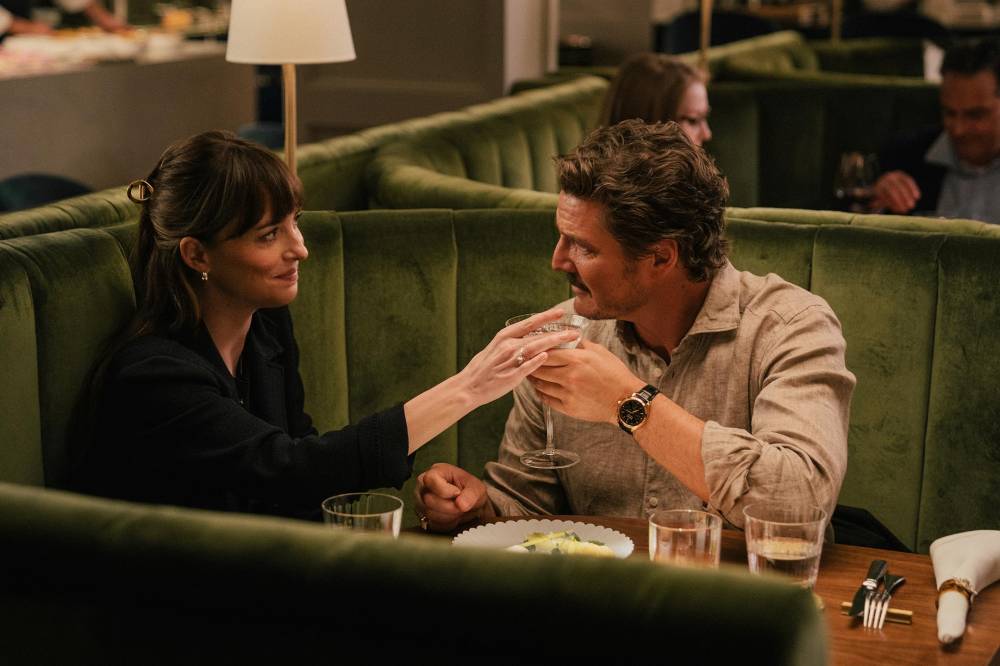Celine Song’s ‘Materialists’ asks the age-old question: Does love come with a price?

Rich. 6’2”. Big 4 university graduate. Social drinkers, okay. Smokers, absolutely not. Family-oriented. Well-read. Good conversationalist. Moderate-to-liberal political leanings. And did we mention rich?
Modern dating defines convenience and compatibility as one’s capacity to check off certain boxes. As progressive as we think we’ve become over the years, dating standards still lean traditional, if not conservative. The ideal man must provide, and the ideal woman ought to crave the “soft life,” but that’s only the tip of the iceberg. Daters expect and are expected to conform to countless standards—including, but not limited to the ones mentioned above.
Rather than perceiving these qualifiers and quantifiers as backwards, they see this as par for the course when looking for life partners, or more fondly, “grave buddies,” as coined by Celine Song’s “Materialists” (2025).

Dating is hard, but love is easy
Following her hit directorial debut with “Past Lives” (2023), Song explores the brutal and almost dehumanizing modern dating scene through the eyes of successful matchmaker Lucy, played by Dakota Johnson.
Lucy has been hard-wired to believe that making great matches is akin to successfully solving mathematical equations. And with nine marriages in her portfolio, there’s not much to disprove her hypothesis, save for her very own dating life. Throughout the film, Lucy is caught between Harry, a dating “unicorn” (rich, fit, and at the right age), played by Pedro Pascal, and John, her struggling actor and broke ex-boyfriend, played by Chris Evans.
Central to “Materialists” is Lucy’s self-hatred and self-sabotage. She spends much of the runtime convincing herself that she doesn’t deserve the abundance Harry can provide, while also seeing herself as too good for the scarcity she had felt with John. This provides a stark contrast to her sharp intellect, which has been key to the matches she’s made for her clients.
Such is the case for women with less-than-favorable experiences of adolescence—particularly bad parenting—which Lucy makes an astute insight about when she says that the way we fight echoes how our parents fight.
Unfortunately, the exploration of Lucy’s character—moreso Harry and John’s—feels rather limited and contrived, as “Materialists” understandably revolves around the modern dating scene. And these three, as well as Lucy’s clients, are simply moving parts in it. There is, however, plenty of insight and corresponding reflection brought out by Song’s take on today’s ventures into romantic relationships—that dating is hard, but love is easy.
Materialists who date
Many things make dating as difficult as it is, but what arguably makes it most difficult is a misunderstanding of what we want to get out of it. Lucy does not believe that dating inherently leads to love, despite ensuring that the matches she makes are good for life. Rather, she ensures that the dates she sets up provide value to both parties involved. Yes, even if that value entails a sense of feeling better about oneself—just because they believe they’ve settled with better partners instead of just anyone else.
Given the importance of value in the film’s definition of dating, dating then comes with a steep price. Literally, because Lucy’s clients pay thousands of dollars for the chance of attaining high-value marriages. Figuratively, because in the search for high value, people see themselves as products worth acquiring instead of human beings worth loving.
Love then feels like something that comes with a price tag, but “Materialists” seeks to prove that it’s the only thing that remains priceless in an increasingly consumerist world. How? By showing how high-profile matchmaking still fails.

But love does not pay the bills
In this economy, however, one cannot help but desire a rich partner anyway. Because while love should be priceless, that doesn’t change the fact that nothing else is. Of course, in a perfect world, you don’t have to worry about paying the bills or succumb to the throes of consumerism in the name of love, or at the very least, dating.
But dating is expensive: you ought to account for the restaurants (that aren’t “shitty Halal carts”), the gifts, and even the emotional labor—while also fitting these expenses into your payroll, or if you’re lucky enough, simply conforming to the rising degrees of capitalist fantasy through voluntary extravagance.
A tagline from “Materialists” asks: how do you choose between the life you want and the love you need? And as much as the film acknowledges how material realities interfere with the relationships we form, it seems to forget that financial stability is a necessity, and love is merely a luxury for most.
One can validly argue that love is a need—Maslow’s hierarchy confirms that, but the same paradigm also shows us that financial security precedes it. Though it is worth noting that Harry and John find themselves on opposite extremes of the spectrum. And Lucy neither has to want someone with a measly $2,000 in their bank account, nor does she need someone who makes that amount hourly. But what’s a film without hefty doses of dramatization?
Ultimately, some people can be lucky enough to find partners who can prove that love is priceless, but until then, some people will just want more.

















